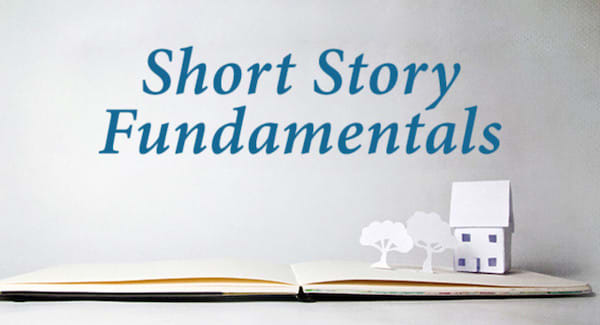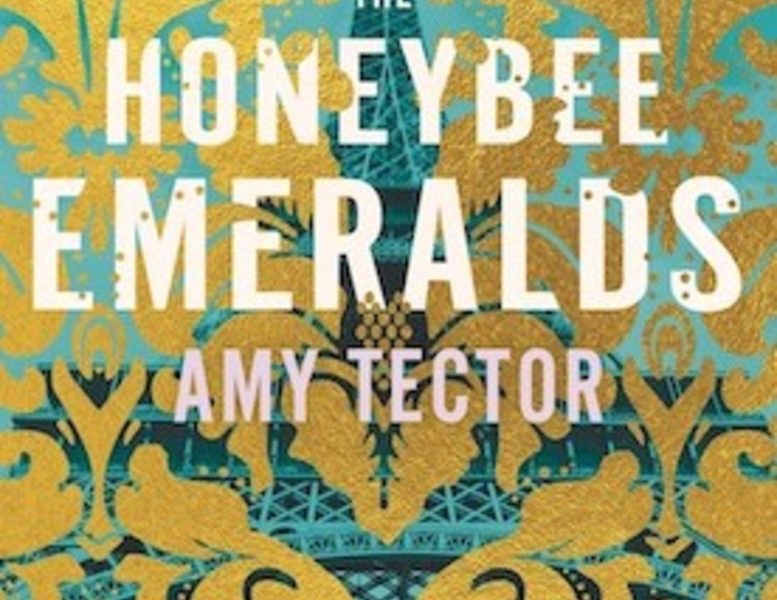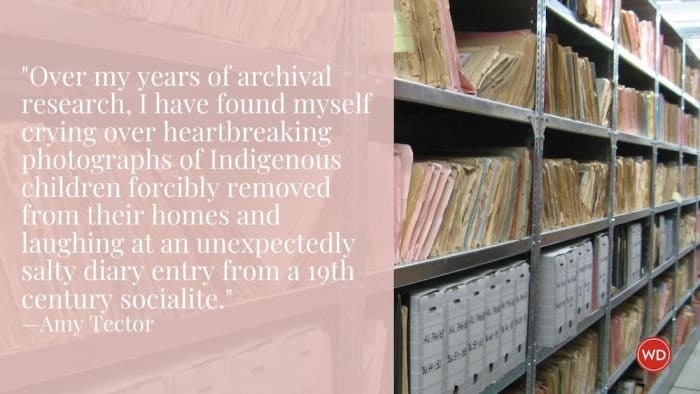Top 5 Things To Know Before Doing Archival Research on Your Book
I have worked in archives for 20 years and have helped many authors navigate this complex and thrilling world to support their own stories. What’s more, every novel I’ve written has featured an archive in one form or another. I love writing about the archives and the mysteries they contain.
(How To Do Writing Research During a Lockdown)
I also love doing archival research, which can be as satisfying as solving a tough crossword puzzle or fitting in that final puzzle piece. If you’re intrigued by the idea of using archives in your writing, here are the top five things you need to know.
Successful archival research takes planning, and yes, research
Archival research rewards specificity. Unlike online inquiry or even library study where you can start general and get specific, archives require targeted detective work. My forthcoming novel, The Foulest Things (Keylight Books, October 2022), features correspondence from World War I. Using Google and the library I investigated wartime Paris and the time period to ensure I understood the era.
When it was time to capture the language and tone of correspondence I turned to archival letters, which helped me add life, depth, and accuracy to my story. Had I gone to the archive without first establishing the basics, my time would have been wasted.
Archivists want to help you
Most archives allow you to book a consultation with a reference archivist, and most of the time it’s free. Every author should avail themselves of this service, even if you know your subject backward and forward. You might be the world expert on salmon fishing in Scottish rivers, but your friendly neighborhood archivist is the expert on what absolute gems that particular archive holds.
When you book an appointment with an archivist, one of the first questions they will ask you is what other sources you have already consulted. This goes directly to my first point. The expectation is that you will have a thorough knowledge of your specific research topic and are now ready to get focused.
IndieBound | Bookshop | Amazon
[WD uses affiliate links.]
Archives are confusing
We are used to typing keywords into a computer and getting instant, relevant results. Book research is also organized in a familiar way. Interested in dinosaurs of the Pleistocene era? The Dewey Decimal System or the Library of Congress Subject Headings group all books on a subject in one handy spot.
Walk into an archive, and let go of ideas of “instant,” “familiar,” and “handy.”
Archives are generally made up of unique, individual items (still often in paper form). Rather than grouped by subject, they are usually categorized by the person or entity that created them. There are very good and sensible reasons for this and literally thousands of pages of archival theory written about the subject, but suffice to say, for the novice researcher it is a bewildering method of organization.
Most of what you want is probably not digitized and you’re going to have to go onsite to get the good stuff
Yes, it’s 2022 and no, most archives have still not digitized all (or even most) of their collection. The reason for this is the sheer scale of work. Canada’s national archive, for instance, has an estimated 150 miles worth of paper records. You might think that even with such a large volume, an archive could just assemble a team and start feeding everything through a scanner to get the job done, but the work is also complex.
A few years ago, Library and Archives Canada undertook a project to digitize about 600,000 personnel files of First World War soldiers. These files contained different types and sizes of pieces of paper assembled over the soldiers’ war service. Some of them were tiny slips of paper directly from the trenches, still covered in a bit of blood or mud, others were oversized medical files or maps. All of it had to be carefully handled and fed through the scanners before being reassembled exactly as it had been before digitization. That tiny slice of their vast collection equaled 30 million pages and it took five years.
My point is that most archives don’t have the resources to digitize all of their holdings, which means archival research is one of the few things in life that is still analogue. Archives are working hard to make as much of their collection digitally searchable as possible, but most will never have the resources to scan everything. Onsite research is a reality for much of what you want to find. On the bright side, it’s an excuse for some travel and a chance to unplug from your screen and enjoy the old-fashioned thrill of real-life research.
Every document tells a story and there are millions of plots waiting to be discovered
I have made archival research sound complicated, daunting and a bit intimidating. To be frank, it can be those things, but the rewards are immense. Archives hold the detritus and truth of human experience. They give you an unselfconscious window into the past.
Over my years of archival research, I have found myself crying over heartbreaking photographs of Indigenous children forcibly removed from their homes and laughing at an unexpectedly salty diary entry from a 19th century socialite. There are secrets to be plumbed and authors shouldn’t avoid the search just because it’s a little complicated.

Whether you are a writing novice looking to cut your teeth or a published professional, the short story is a unique and challenging medium that offers you amazing opportunities. Also, short stories are a great way to gain publishing credentials with less time investment than it takes to develop a novel-length work. The course covers structure and the common pitfalls writers experience when crafting a short story.



